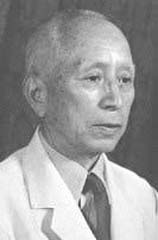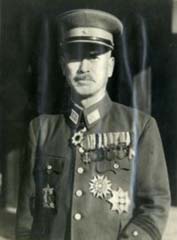famous World War I flying ace and sometime companion of Hermann Göring, was appointed head of the Luftwaffe Technical Office in 1936 and three years later was given control of the new and powerful Office of Air Armament; a sparkling socialite and a good judge of fighter aircraft, was a startlingly incompetent and lazy administrator, wholly unqualifited for the tasks of overseeing all aspects of Luftwaffe development; under his loose supervision the German aircraft industry descended into chaos; resources were squandered on new designs sanctioned virtually at random, while production and development estimates were based largely on optimistic guesswork; in the labyrinthine confusion of his vast offices, accurate information was quite lost to the High Command, who knew more about American production than their own by 1941; as existing aircraft were being phased out, their replacements often either failed to function of failed to appear at all; this was particularly disastrous for Germany's bomber program which, additionally hamstrung by his personal enthusiasm for dive-bombers, ground to a complete standstill, leaving the Luftwaffe stranded with obsolete types for the rest of the war; although Göring continued to support his long-time comrade almost to the end, the realities of German aircraft production impressed themselves on other Luftwaffe leaders during 1941; in despair and panic, he shot himself in November, and Erhard Milch took over the bloated shambles of his bureacracy; his death was officially ascribed to a plane crash and he was given a hero's funeral; obsolete aircraft remained in production pending rationalization.

Japanese staff commander and Vice Minister of War from 1936 to 1939, was involved with the Toseiha (Control Faction) Group, of whom Hidecki Tojo was a prominent leader and was therefore highly influential in promoting their interests during the 1930s, when the Japanese Army began to force government policy in Japan; appointed commander of the Kwantung Army in Manchukuo (Manchuria) in September 1939, became probably the most powerful Japanese figure in China until 1944, when he replaced General Tojo as Army Chief of Staff; despite his militarist commitment, was persuaded to accept the Potsdam Declaration and was one of the signatories of the surrender document on the USS Missouri, in September 1945; was subsequently sentenced to life imprisonment for war crimes.

commandant of the Japanese Military Academy in 1942, subsequently served on Iwo Jima and then as commander of the 32nd Army on Okinawa, where he was charged with the defense of the island against the enormous American invasion force which began its landings there on April 1, 1945; the last and most costly battle of the Pacific War, the battle for Okinawa saw a skilled defensive campaign conducted by him; was nevertheless unable to affect the final outcome and committed ritual suicide, along with his chief of staff, General Cho, on June 22.
